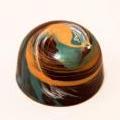-
Welcome to the eG Forums, a service of the eGullet Society for Culinary Arts & Letters. The Society is a 501(c)3 not-for-profit organization dedicated to the advancement of the culinary arts. These advertising-free forums are provided free of charge through donations from Society members. Anyone may read the forums, but to post you must create a free account.
How to keep breading on the meat
-
Similar Content
-
- 4 replies
- 386 views
-
- 3,882 replies
- 665,273 views
-
- 11 replies
- 2,998 views
-
- 24 replies
- 4,242 views
-
- 46 replies
- 9,453 views
-
-
Recently Browsing 0 members
- No registered users viewing this page.





Recommended Posts